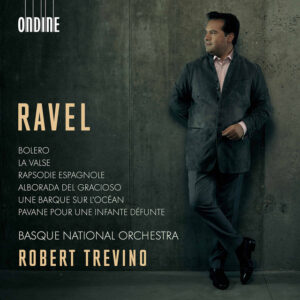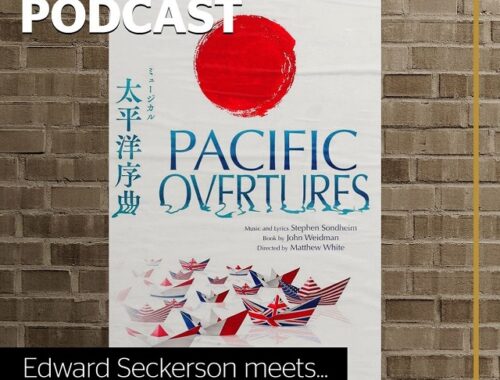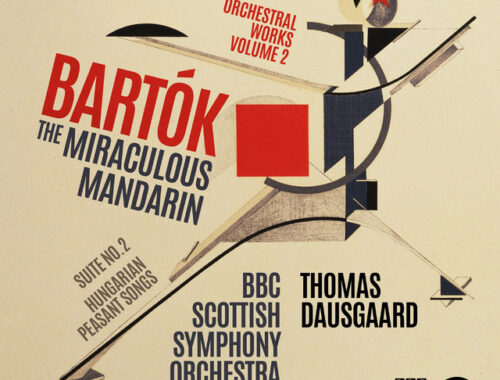GRAMOPHONE Review: Ravel Orchestral Works – Ma Mere L’Oye, Scheherazade Overture, Valses Nobles et Sentimentales etc. – Basque National Orchestra/Trevino
 I think it’s fair to say that I greeted the inaugural Ravel collection from this source with ‘modified rapture’. But reservations apart, it was self-evident to me (and I’m not being fanciful) that there was something deeply empathetic about the Basque National Orchestra’s pride in and affection for this music. The feeling runs deep – as does Robert Trevino’s stewardship of it – and nowhere more so than in the final pages of the Ma mere L’Oye ballet – given for once here in its entirety. Now there’s a piece to make children of us all.
I think it’s fair to say that I greeted the inaugural Ravel collection from this source with ‘modified rapture’. But reservations apart, it was self-evident to me (and I’m not being fanciful) that there was something deeply empathetic about the Basque National Orchestra’s pride in and affection for this music. The feeling runs deep – as does Robert Trevino’s stewardship of it – and nowhere more so than in the final pages of the Ma mere L’Oye ballet – given for once here in its entirety. Now there’s a piece to make children of us all.
I cannot stress how important it is that we get the whole piece as opposed to the often played (and recorded) suite. Granted there isn’t a whole lot more music – but what there is in a couple more numbers and imaginative connecting tissue transforms the experience in ways that make it disproportionately more ‘substantial’. Meaning that we make our way to the concluding Le garden féerique having somehow earned that golden ticket to eternal enchantment. And that transition – less than five minutes of music – has to be the most ravishing and heartfelt that Ravel ever penned. Clearly I am not alone in recognising it as such. Trevino and his players make the gentlest embrace of it (the title of the song ‘Killing Me Softly’ springs to mind) and for once it feels like the summation of all the fragrant and fantastical etchings that have gone before. It’s worth purchasing the disc for this alone.
But there are other attractions and indeed rarities on offer here. We don’t often hear Ravel’s first orchestral essay Shéhérazade and whatever its structural incoherences it is an oriental extravaganza so rich in passing beauty and drama (Rimsky-Korsakov looks on) that you stop noticing the joins. The swoon factor is clearly intact. But then consider the piece that precedes it – Frontispice (1921) – as fleeting as it is radical (originally two pianos, five hands), polytonal, polyrhythmic, disorientating. A kind of musical PTSD? This is the world premiere of Pierre Boulez’ 1987 orchestration (made for the 50th Anniversary of his death) – and what one might call the Gothic moment at the close seems to arrive from nowhere like some kind of lasting monument to the dead of the Great War or perhaps even Ravel’s beloved mother who died during the course of it.
But back to the dance. In its orchestral version Menuet antique (again originally for piano) is another prime example of Ravel’s penchant for dressing up old dance forms for the new century. The ripeness of the Basque National Orchestra’s winds – a pleasure throughout the disc and a distinguishing feature of the band’s character – are heard to great effect in the trio section.
And then there is the invitation to the dance – Ravel’s compendium of Valses nobles et sentimentales fleeting and ephemeral, joyful, lush, but also anxious. It is, of course, impossible to hear the piece now without carrying with one the concluding catastrophe of La Valse. Indeed the penultimate waltz of this set is already hurtling towards it – a gathering intensity which is not lost on Trevino and his players.
My rapture is less modified this time around. Excellent disc.
You May Also Like

John Weidman on Pacific Overtures & collaborating with Stephen Sondheim
01/12/2023
GRAMOPHONE Review: Bartók Orchestral Works, Vol 2 – BBC Scottish Symphony Orchestra/Dausgaard
19/05/2021

